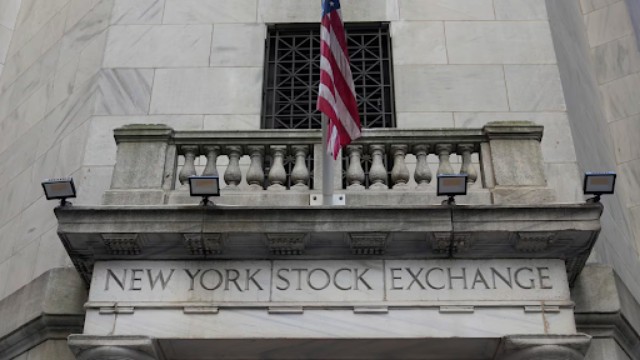
A view of the New York Stock Exchange in New York on Wednesday, February 26, 2025. (AP Photo/Seth Wenig)
Wall Street showed resilience on Tuesday, following a strong surge the previous day fueled by optimism that President Donald Trump’s proposed tariffs may not be as severe as initially feared.
The S&P 500 climbed 0.2% in the morning session after surging 1.8% on Monday. The Dow Jones Industrial Average gained 50 points (0.1%), while the Nasdaq composite edged up 0.2%.
Stocks Recover Amid Tariff Concerns
Despite recent turbulence, U.S. stocks have managed to regain some lost ground. Earlier this month, the S&P 500 dropped 10% below its all-time high, marking its first "correction" since 2023. It now sits about 6% lower than its record peak, making the market appear more affordable after years of rapid growth.
However, analysts warn that volatility is far from over, especially with the looming April 2 deadline. Dubbed "Liberation Day" by Trump, this marks the beginning of new tariffs on global trade partners. While Monday's rally was fueled by hopes that these tariffs may be more selective, experts caution against underestimating the economic risks.
Barclays' global research head, Ajay Rajadhyaksha, believes markets are "underplaying the risk of a tariff shock." He points to stable values of the Mexican peso and Canadian dollar, suggesting that traders may not be fully pricing in potential disruptions.
Consumer Confidence Hits 12-Year Low
Even if Trump’s trade measures end up being less damaging than anticipated, ongoing discussions about tariffs have already shaken consumer and business confidence.
A report on Tuesday revealed a sharp decline in U.S. household sentiment. The Conference Board’s consumer confidence index fell more than expected, largely due to pessimism about short-term economic prospects. The index dropped to its lowest level in 12 years, falling "well below the threshold of 80," which often signals an impending recession.
Although the job market and economic activity remain stable for now, the growing uncertainty among consumers and businesses raises concerns about potential slowdowns in spending and investment.
Trump Media Surges on Crypto Deal
On Wall Street, Trump Media & Technology Group (TMTG) saw its stock jump 8.8% after announcing a partnership with Crypto.com. The deal aims to introduce a range of "America-First" investment funds under the Truth.Fi brand.
These exchange-traded funds (ETFs) will include bitcoin, other digital assets, and U.S.-focused securities spanning various industries, including energy. Crypto.com will handle backend operations, custody services, and cryptocurrency management for the ETFs.
Housing Market and Corporate Struggles
Homebuilder KB Home tumbled 4.2% after reporting weaker-than-expected profits and revenue. The housing sector, already under pressure, could face further difficulties if tariffs drive up material costs, leading to higher prices for buyers. Meanwhile, a separate report indicated that new home sales in the U.S. slightly missed economist expectations in February.
Spice maker McCormick also dipped 0.2% after delivering lower-than-expected earnings, citing "consumer and economic uncertainty" as key challenges.
Tesla struggled to find direction, fluctuating between small gains and losses before sliding 0.6%. The electric vehicle giant reported disappointing sales in Europe, with deliveries plunging nearly 50% in the first two months of 2024 compared to the previous year. Despite the growing demand for EVs, Tesla faces fierce competition from Chinese manufacturers like BYD. Some analysts also speculate that CEO Elon Musk's recent controversial political endorsements may have negatively impacted Tesla’s brand image.
Global Markets and Bond Yields
Overseas, European markets mostly gained following mixed performances in Asia. In the bond market, Treasury yields dipped slightly, with the 10-year yield falling to 4.32% from Monday’s 4.34%.















